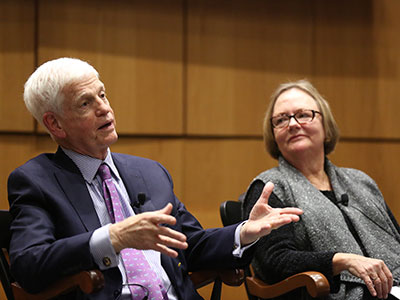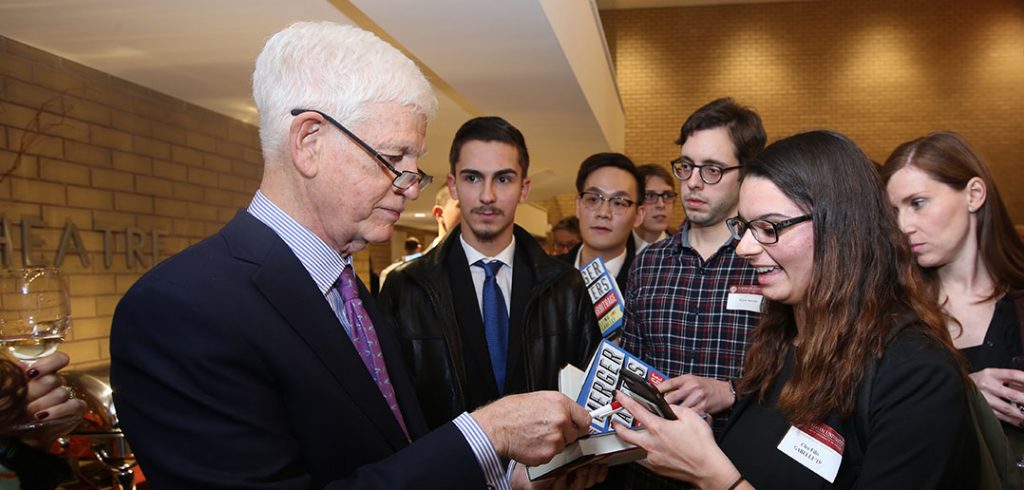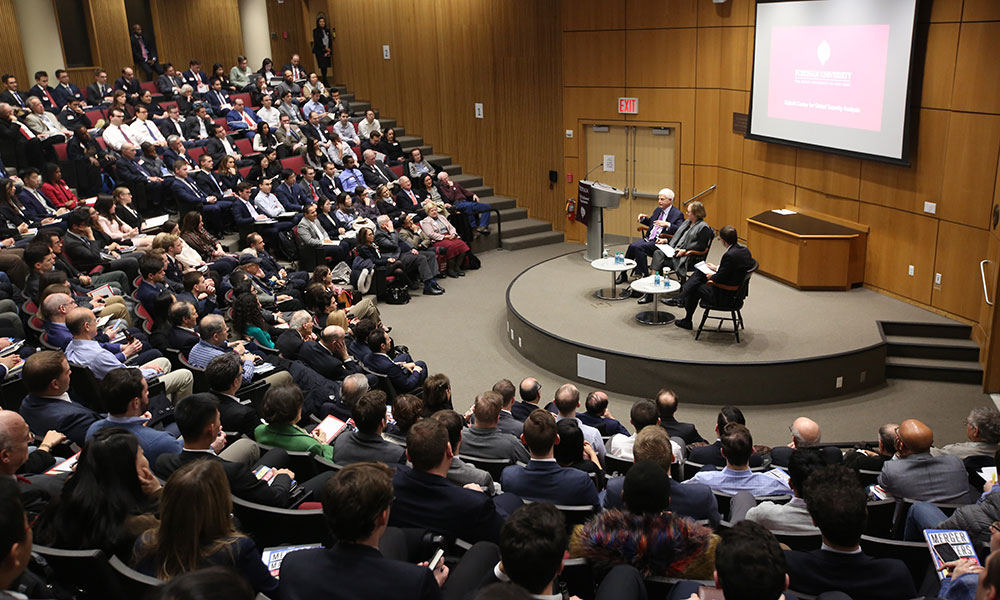What makes a good arb?
Mario Gabelli, the chairman and CEO of GAMCO Investors, Inc., is among the most qualified people you could ask.
For starters, Gabelli—for whom Fordham University’s Gabelli School of Business is named—is a legendary arb, or risk arbitrageur, himself. Though better known as a value investor, Gabelli has utilized the discipline of risk arbitrage to successfully invest in companies undergoing mergers, reorganizations, and other corporate events.
Said Gabelli, “If there’s a better discipline than merger arbitrage to use as the foundation for a career in investing, I haven’t found it yet— in 51 years in the financial industry.” That conviction drove Gabelli to enlist Kate Welling, the long-time Barron’s managing editor who since 2012 has independently published Welling on Wall St., an online journal for professional investors, to write the just-published Merger Masters: Tales of Arbitrage. Gabelli provided the introduction, drawing on his decades of experience in risk arbitrage to stress that there’s no better discipline for teaching you everything you need to know about deals and dealmaking than arbitrage. Based on 21 exclusive interviews, Merger Masters then explores the art and science of merger investing and offers an inside view into the world of corporate mergers and takeovers. The volume profiles 18 renowned arbitrageurs, including such famed investors as Paul Singer and John Paulson, who candidly dissect their strategies, successes, and missed opportunities—and then takes the discussion to another level by also including profiles of three uber-successful corporate leaders whose stellar records for enhancing long-term returns to shareholders were built, in part, on dealmaking, and in part on successfully “just saying no” to proffered deals.

Gabelli laid out the book’s guiding questions at a Nov. 28 event at Fordham’s McNally Amphitheatre:
“We have 18 individuals who are highly successful. How does that happen?” he asked. “Does it happen because of the individuals and their backgrounds? Or does it happen because of what they’re doing in their investment process?”
The Mindset of an Arbitrageur
Though the arbitrageurs discussed in the book sometimes differ vastly in terms of the types of deals they prefer to target, Welling found a number of consistent themes in the character makeup of successful merger investors.
“They all are incredibly skeptical, usually very contrarian souls,” Welling said at the Fordham event, which was sponsored by the Gabelli Center for Global Security Analysis, CFA Society of New York, and the Museum of American Finance.
That contrarian spirit, she said, is almost always paired with a deep analytical mindset. She added that risk arbs must also have nerves of steel—the discipline to adhere to a strategy, a willingness to tolerate calculated risk, and an ability to make decisions under conditions of uncertainty.
“They’re betting all the time,” Welling said. “But they’re not riverboat gamblers, they’re card counters.”
In a contrarian turn of his own, Gabelli said that as much as all investors want every trade to be successful, being a good risk arb “requires an ability to lose.”
“You’ve gotta be excited when you miss one,” he said, and be eager to figure out what went wrong and take lessons from the experience. Risk arbitrage, he said, is analogous to “getting in front of a steamroller and bending down for nickels, and getting crushed every so often.”
Foundational Knowledge
Aside from the opportunity for consistent low-risk returns not correlated to movements in the stock market, the risk arbitrage discipline is also attractive to Gabelli because it teaches investors foundational techniques applicable across the financial industry—valuation, knowledge of domestic and global regulatory and tax regimes, methods of financing and structuring deals, and more.
“Those things work on everything you do,” he said. “It keeps you up-to-date on every financial technique that’s available.”
Gabelli’s message to students: “This is a great business to be in because you learn a lot, it’s not complicated, and you can do it tonight.”
“You’ve gotta know yourself,” Gabelli said, adding, “Take your intellectual talent and apply it consistently in an area.”
This piece of Gabelli’s advice resonated with Thomas Mitchell, a Gabelli School of Business junior. Mitchell plans to incorporate Gabelli’s risk arbitrage techniques in his own investing. “It was really cool to hear him talk about how anyone can do it,” Mitchell said. “It’s a simple strategy, you just have to be an analytic risk-taker.”
“Even with a retail account, I can still implement the strategy pretty effectively and do the research,” he said.
–Michael Garofalo


